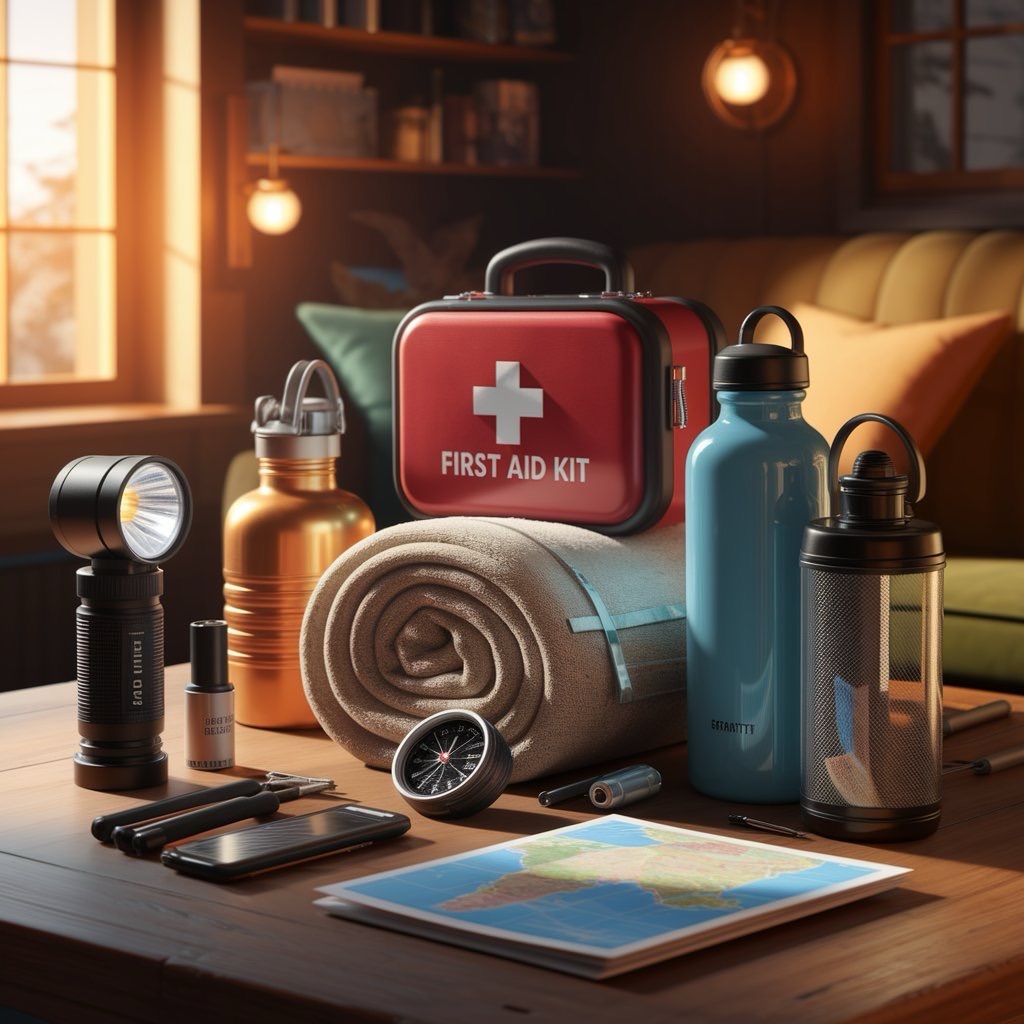The future is unpredictable, and scary events—natural disasters, economic downturns, or other emergencies—can feel overwhelming to think about. But here’s the truth: the more prepared you are, the less you have to fear. Being proactive about emergency readiness not only equips you with the tools you need to handle tough situations but also gives you peace of mind. Let’s explore why preparedness empowers you and how you can transform fear into confidence.
Fear Is Rooted in the Unknown
Much of the fear surrounding emergencies stems from uncertainty: What will happen? Will I have what I need? How will I protect my family? These are valid concerns, but they don’t have to be paralyzing. Preparedness bridges the gap between the unknown and the controllable. When you have a plan in place and know you’re equipped for potential challenges, those fears diminish.
Preparedness Transforms Anxiety into Action
Think of preparedness as your personal insurance policy. It’s not about dwelling on worst-case scenarios—it’s about acknowledging possibilities and taking practical steps to be ready. Here’s how preparedness empowers you:
• Food Storage: Familiarizing yourself with long-term food storage ensures that your family has nourishment, even during supply chain disruptions or power outages. Knowing how to rotate and use stored food makes it second nature, not a chore.
• 72-Hour Kits: These portable emergency kits offer the security of having the essentials—food, water, and first aid—on hand if you need to evacuate quickly. When you’ve assembled and reviewed your kit, you’ll feel ready, not rushed, in an emergency.
• Camping Gear: Multi-purpose items like tents, sleeping bags, and portable stoves can double as survival tools. By learning how to use them effectively, you’re prepared for both outdoor adventures and unforeseen emergencies.
• Survival Techniques: Skills like starting a fire, purifying water, or administering first aid can make all the difference in a crisis. Practice makes these actions second nature, turning potential stress into confident problem-solving.
Familiarity Breeds Confidence
When you know how to use your gear, rotate your food supply, and implement your plans, your fears are replaced by a sense of control. Preparedness becomes part of your lifestyle rather than a daunting checklist. You know you’re ready for anything, and that confidence is freeing.
The Psychological Benefit of Being Prepared
Preparedness isn’t just about physical tools and supplies—it’s about mental readiness. Studies show that having a plan in place reduces stress and anxiety during emergencies. Instead of scrambling to make decisions in the heat of the moment, you’ll act with clarity and purpose because you’ve already thought it through.
Start Small, Stay Consistent
If you’re new to emergency preparedness, don’t worry—you don’t need to tackle everything at once. Start with small, manageable steps, like creating a basic 72-hour kit or learning a simple survival skill. Over time, these small actions build into a robust system of readiness.
Be Ready, Not Fearful
Preparedness isn’t about paranoia—it’s about empowerment. The more you invest in your readiness, the less fear you’ll feel about what the future may bring. When emergencies arise, you’ll be able to focus on solutions, not stress.
So, take that first step. Gather your supplies, learn those skills, and make a plan. With preparation, you’ll face the future not with fear, but with confidence, knowing you’re ready for whatever comes your way.
You’ve got this—because preparedness means peace of mind.



